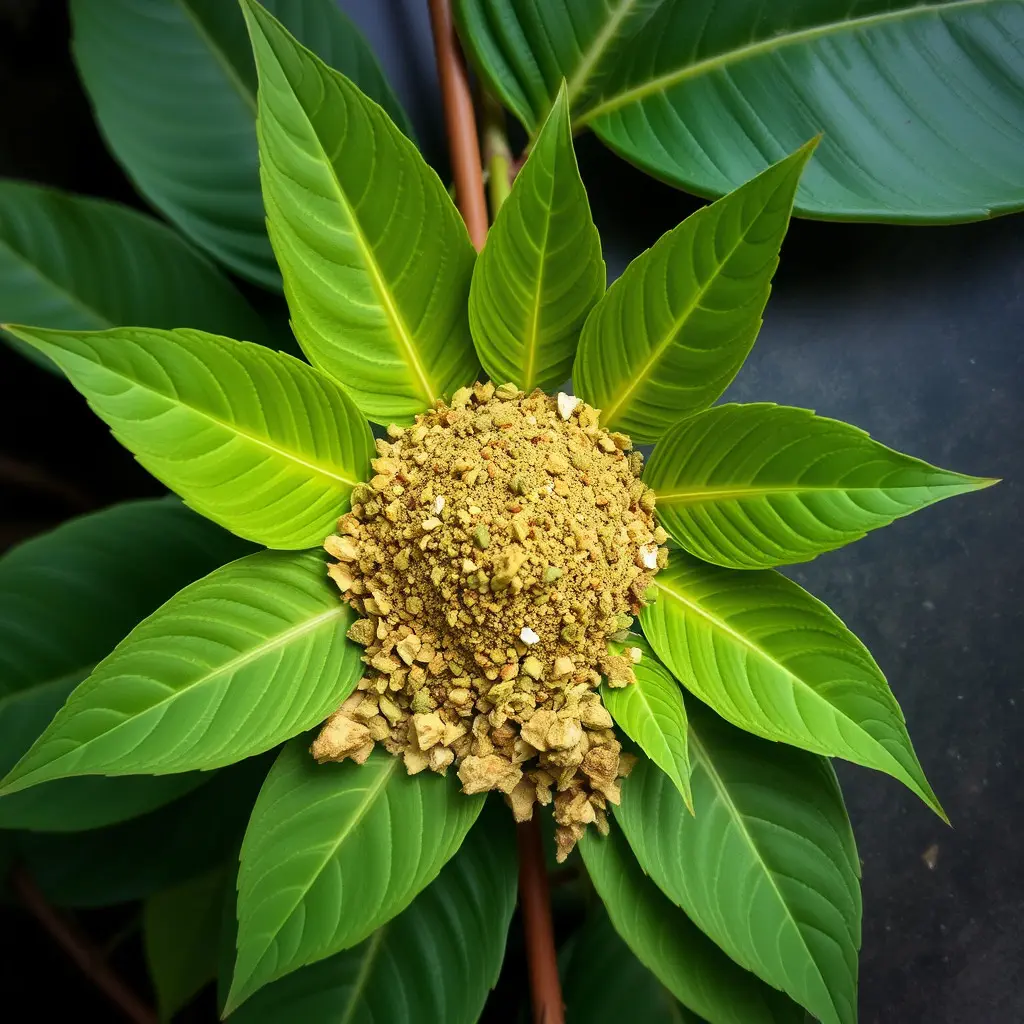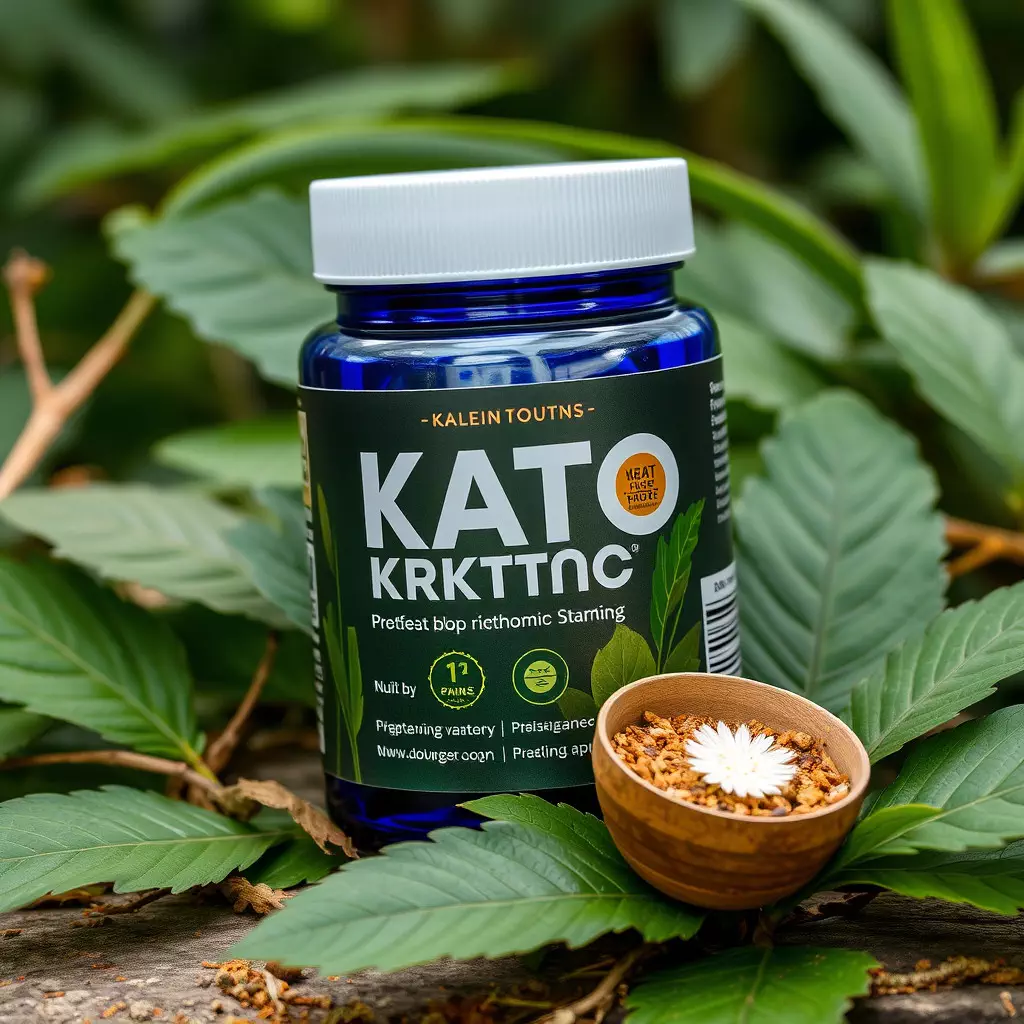Kratom, a plant extract from Southeast Asia containing alkaloids like mitragynine and 7-hydroxymitragynine, has been studied for its potential to enhance cognitive function and reduce stress. Research suggests that kratom may improve focus, concentration, and memory recall, offering cognitive benefits for academic or professional tasks. Its effects on mental well-being could also provide stress and anxiety relief by engaging with opioid receptors and modulating neurotransmitter systems. However, due to its potency and the variable legal status of kratom, it's crucial for individuals to use it cautiously, determine appropriate dosages, and consult healthcare professionals. The timing and quality of kratom consumption are important factors in optimizing its effects on cognitive performance. Users should monitor their health and be aware that the compound can influence mood regulation and cognitive health through the modulation of serotonin and norepinephrine levels. Safe and informed use of kratom for cognitive function improvement requires a careful approach, adherence to best practices, and ongoing attention to scientific research.
Kratom, a botanical extract from the Mitragyna speciosa tree, has garnered attention for its multifaceted effects on mental well-being. This article delves into how Kratom may potentially enhance cognitive function and significantly reduce stress and anxiety levels. We explore the scientific evidence supporting its role in promoting mental clarity and easing anxiety. Additionally, we navigate the nuances of safe usage, ensuring readers are well-informed on incorporating Kratom responsibly into their daily routines for optimal benefits. Join us as we dissect the intricacies of Kratom’s influence on cognitive enhancement and stress relief.
- Unveiling the Potential of Kratom for Enhanced Cognitive Function and Stress Reduction
- The Science Behind Kratom's Impact on Mental Clarity and Anxiety Alleviation
- Navigating the Nuances: Safe Usage and Considerations When Incorporating Kratom into Daily Life
Unveiling the Potential of Kratom for Enhanced Cognitive Function and Stress Reduction

Kratom, a tropical tree native to Southeast Asia, has garnered attention for its potential cognitive benefits and stress-reducing properties. The leaves of this plant contain alkaloids, such as mitragynine and 7-hydroxymitragynine, which have been the subject of research for their impact on mental performance and emotional well-being. Emerging studies suggest that kratom may enhance cognitive function by improving concentration, focus, and memory retrieval. Users report an increased ability to handle complex tasks with less mental fatigue, indicating a potential application for individuals seeking cognitive enhancement in academic or professional settings.
In addition to its cognitive-enhancing properties, kratom is also being explored for its stress-reducing effects. The alkaloids present in kratom interact with the body’s opioid receptors, potentially modulating the brain’s response to stress. This interaction can lead to a sense of calmness and relaxation, which may be particularly beneficial for individuals dealing with anxiety or acute stress. It’s important to approach the use of kratom with caution, as it is a potent substance that requires careful dosing and consideration of individual health factors. Users should consult with healthcare professionals before integrating kratom into their wellness regimen, ensuring safe and informed use for the improvement of cognitive function and the alleviation of stress.
The Science Behind Kratom's Impact on Mental Clarity and Anxiety Alleviation

Studies have begun to shed light on the complex interplay between kratom, a plant-based compound derived from Mitragyna speciosa trees native to Southeast Asia, and its potential effects on cognitive function and mental well-being. Kratom contains alkaloids such as mitragynine and 7-hydroxymitragynine, which are believed to interact with the body’s opioid receptors, as well as other neurotransmitter systems. These interactions may contribute to kratom’s reported effects on stress and anxiety levels. Preliminary research suggests that kratom might enhance cognitive function by promoting a state of calm focus rather than sedation. This could potentially aid in the reduction of anxiety without impairing mental clarity, an effect that is of particular interest to those seeking natural alternatives to pharmaceutical treatments for anxiety and stress-related conditions. The proposed mechanisms underlying kratom’s impact on cognitive function and mental clarity are multifaceted, involving modulation of neurotransmitters like serotonin and norepinephrine, which play a role in mood regulation and cognitive processes. However, it is crucial for users to approach the use of kratom with caution, as more robust research is needed to fully understand its effects, potential benefits, and risks. Users are advised to consult healthcare professionals before incorporating kratom into their wellness routines, especially considering the legal status of kratom varies by region.
Navigating the Nuances: Safe Usage and Considerations When Incorporating Kratom into Daily Life

Kratom, a plant from Southeast Asia with leaves that contain psychotropic compounds, has gained attention for its potential effects on stress and anxiety levels as well as cognitive function improvement. When considering the safe incorporation of kratom into daily life, it is imperative to approach this practice with caution and informed understanding. Proper dosage is a critical factor; both under- and overconsumption can lead to adverse effects. Users should start with a low dose to gauge individual responses and gradually adjust as needed, while always remaining within recommended parameters. Additionally, the timing of kratom intake can influence its impact on cognitive function, with some finding it most beneficial when taken in the morning to support mental clarity throughout the day. It is also crucial to consider the source and quality of the kratom product, as purity and potency can vary significantly among brands. Regular monitoring of one’s mental state and physical health is essential, and individuals should consult with healthcare professionals before integrating kratom into their wellness regimen, especially if they are managing other health conditions or taking medications that could interact with kratom. By adhering to these guidelines and staying informed about the latest research on kratom’s effects, users can better navigate its potential benefits for stress and anxiety reduction while optimizing cognitive function.
Kratom’s potential in improving cognitive function and reducing stress and anxiety levels has been a subject of growing interest, with scientific research providing valuable insights into its mechanisms. This article has explored the intricate effects of Kratom on mental clarity and anxiety relief, emphasizing the importance of safe usage and individual considerations. As we conclude, it’s clear that when approached responsibly, Kratom may offer significant cognitive enhancements and emotional support. Prospective users should weigh these benefits against the need for careful dosing and personal health considerations to harness its advantages effectively.






